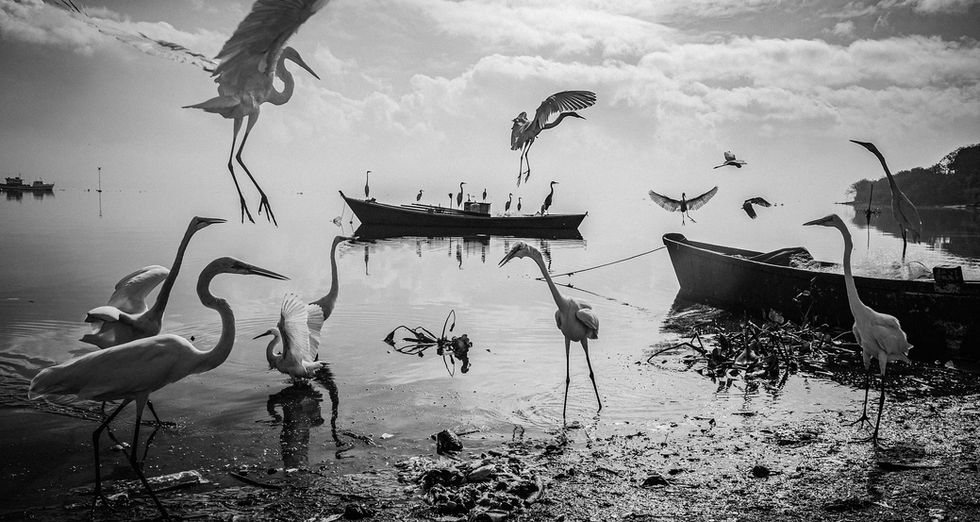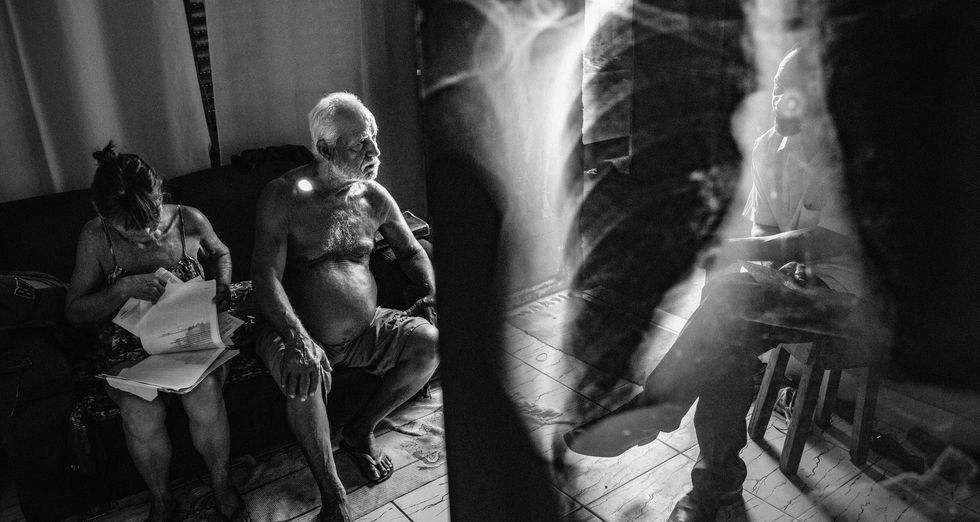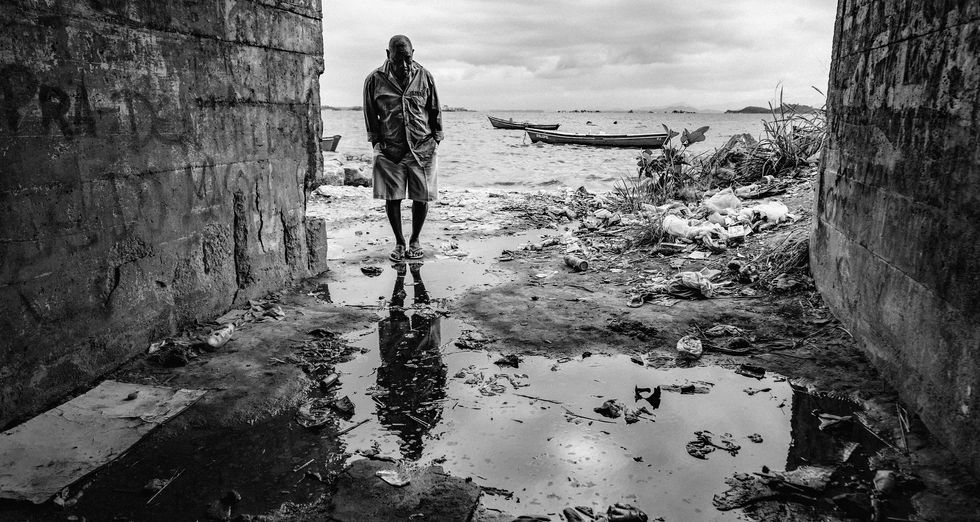
Courtesy of
Dario De Dominicis
Climate Change
Highly Commended
Dario De Dominicis
To the left of Christ
Rio de Janeiro, Brazil
In the already economically depressed area of Guanabara Bay, Rio de Janeiro’s natural harbour, the industrial development is disputing the territory with traditional fishing, leaving only 12% of the area available to 8000 fishermen. Territory limitations come from the Navy activities and from the congested shipping lanes, but even more restrictions are imposed by oil companies, who colonized the bay both above and below the water surface with offshore platforms and oil and gas pipelines on the seabed. As well as possible contaminations by the oil industry, estimated at 0,3 tons of heavy metals such as lead, zinc and mercury leaked per day, the bay is also threatened by city pollution. The metropolis discharges 17 tons of untreated domestic sewage per second into the bay. According to recent studies by the State University of Rio, the water of the bay presents a high concentration of endocrine-disruptors compounds. The recent-discovered micro pollutants seem to be able to interfere with the endocrine system, causing consequences such as the decrease in hatching percentage of fish egg and the feminization of male fish. In humans, micropollutants effects increase breast, testicular and prostate cancer. These attacks on the ecosystem are even more aggressive due to the vacuum of institutional territory control and due to the toxic waste criminal business, which is dominated by drug traffickers and militias.
As a documentary photographer, I have investigated the state of degradation and abandonment that the community of artisanal fishermen has been experiencing in Guanabara Bay over the past six years. Local fishermen's associations report that fishing activities have fallen to the lowest ever level, and claim that some families have already started to live in poverty. In the most populous and industrialized inner part of the bay, the damage is even greater, since both the soil and the underground water reserves are being constantly contaminated. Many of the factories operating in the region were fined and condemned for environmental crimes, but they continue their illegal activities. Support to my project will ensure high visibility of this problem, and will allow me to complete the remaining chapters of my investigation. By the end of 2024, I intend to finalize a thorough and convincing visual statement to raise awareness on a contemporary drama that is not only environmental, but that is also part of the global debate on food safety. As recently stated by the United Nations in one of their international resolutions, artisanal fishery represents more than 90% of the world’s extractive fishing. Protecting small fishing communities means protecting those habitats whose biodiversity is key to guarantee the alimentary balance of our planet.












